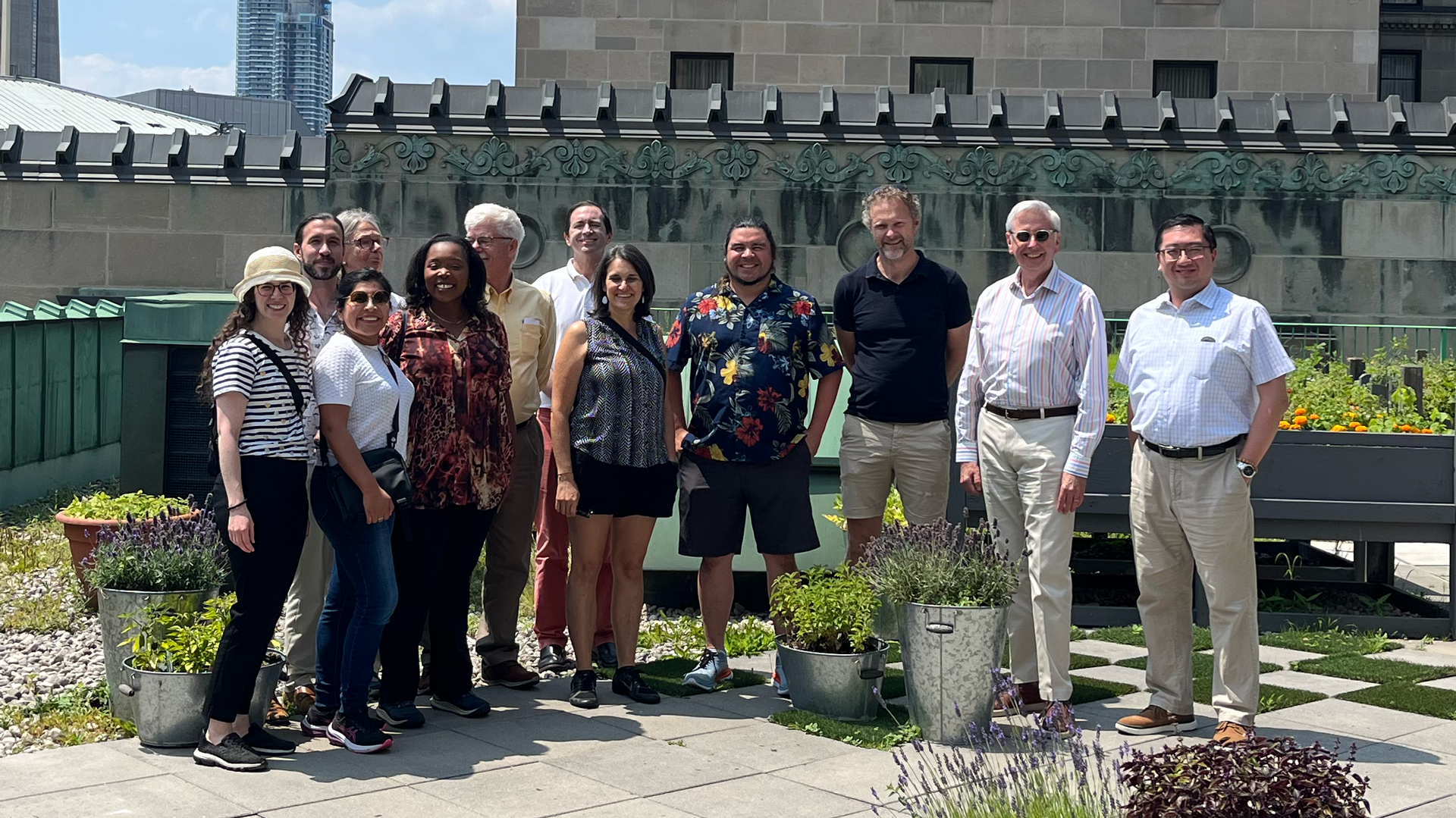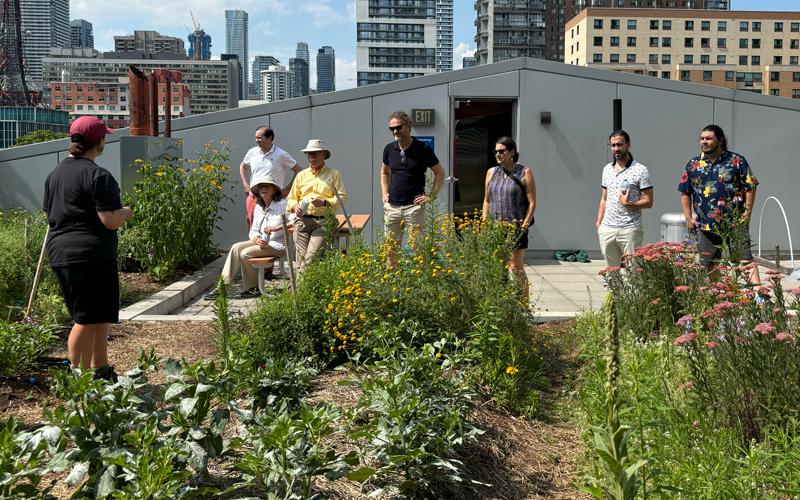By: Liz Do
15 Jul, 2025

This story was originally published in September 2024.
 UPDATE:
UPDATE:In July 2025, CIFAR released the Future of Food Report, offering an overview of the discovery panel’s discussions and recommendations on potentially transformative areas for future research.
What could affect food supplies between now and 2050? To find out, CIFAR has convened researchers from around the world to create a discovery panel on “The Future of Food.”
This is the first foresight initiative since the launch of CIFAR’s new Strategy. Launched this spring, the Strategy includes a bolstered commitment to exploring and targeting areas that are likely to be at the forefront of attention in 10, 20, or more years as serious threats to, or opportunities for, the health and prosperity of people around the world.
The panel consists of nine researchers representing diverse expertise on food systems from around the globe, from countries including the Netherlands, Kenya, Peru and Canada.
“The global commercial food system of today produces more food, more efficiently, than our grandparents could ever have imagined, and distributes it around the world. It is a marvel of applied science, technologies and commerce, offering greater variety, convenience and quality than ever before,” explains Deborah Buszard, chair of the panel and a professor at the University of British Columbia, specializing in plant science.
“That said, there are costs — impacts on ecosystems, soils and water resources and on climate,” adds Buszard. “And there are limits to the bounty of today’s global food systems. On the one hand, millions go hungry and malnourished while simultaneously, we see a rising tide of obesity.”
In order to understand the complexities and challenges of food systems decades into the future, the panel engaged in facilitated foresight exercises, including creating scenarios of what the world and food systems might look like in 2050. According to the United Nations, in the next 30 years, food supply and food security will be severely threatened if little or no action is taken to address climate change and the vulnerability of food systems to this change.
“Food is fundamental to human wellbeing and climate change is making the likelihood of crop failures greater around the globe. We urgently need to invest in improving food production systems to withstand climate pressures,” says Buszard.
The panel’s discussions have ranged from Indigenous food systems and fisheries to controlled environments and industrially produced novel foods, as well as diet and health.
The group also visited rooftop farms in Toronto and participated in panel discussions with members of the Global Alliance for the Future of Food, Fresh City Farms, Community Food Centres Canada and the Food Innovation & Research Studio, which focused on food insecurity, food waste and social infrastructure.

Follow-up discussions for the panel are planned for September. Ultimately, CIFAR aims to leverage the panel’s insights to uncover areas of potential research and focus for the organization and drive future impact in Canada and around the world.
“Rising food insecurity across the globe is a pressing challenge facing science and humanity,” said Stephen Toope, President & CEO of CIFAR.
“CIFAR’s new Strategy includes a commitment to expand our exploration of issues on the horizon that could be productively addressed through the CIFAR model, and I can think of no better place to start than the future of food,” he added. “We are excited to explore how mobilizing bold, forward-looking researchers to work across geographic and disciplinary borders could lead to new ideas, insights and knowledge on this vital topic.”